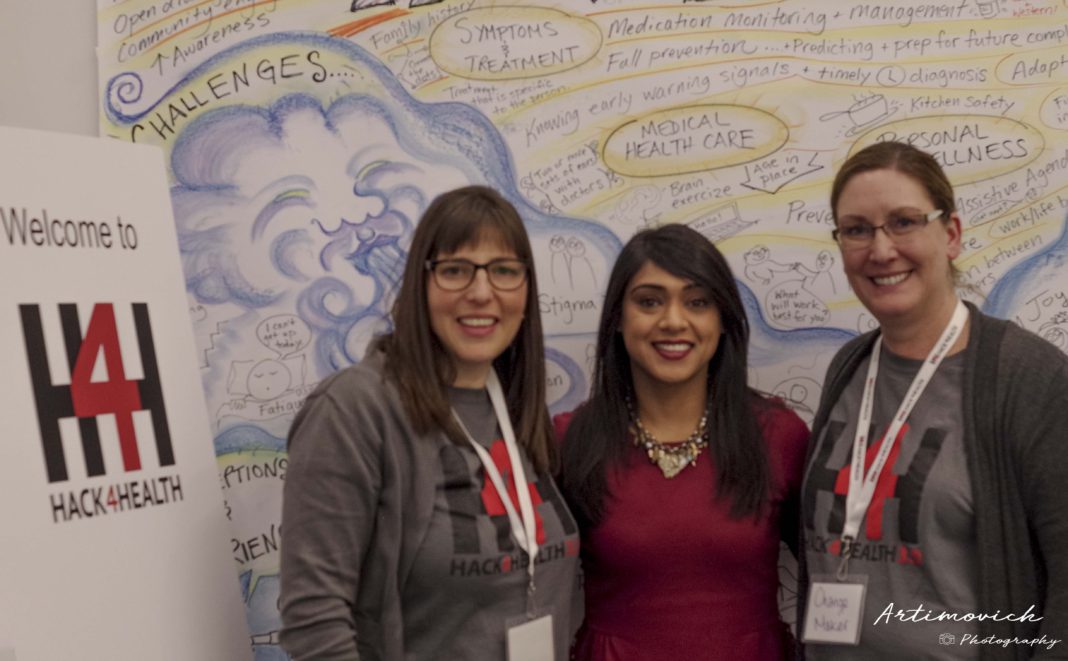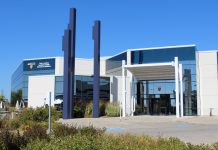Hack4Health held its third annual hack-a-thon at UW’s AHS building.
“[It’s an] to provide an opportunity for students to come together and to think about the challenges of people living with MS and dementia,” said Lisa Loiselle. Loiselle is the associate director of the Murray Alzheimer Research and Education Program (MAREP). She’s also the co-chair of Hack4Health 3.0.
The event, which took place Nov. 10-12 at the AHS building, was free to participate in for AHS students, and $15-$20 for non-AHS students.
MS is an autoimmune disease that focuses on the central nervous system. It attacks the myelin, the protective covering of nerves, causing inflammation.
According to the MS Society of Canada, an estimated 1-in-340 Canadians are living with the disease, the highest rate in the world.
Hack4Health has boasted accomplishments including, “the formation of a number of companies,” according to Loiselle.
In the Hack-a-thon’s first year there was a team called Curiato, who created the idea for a mattress called Cloud9.
“[Curiato] are about to enter their clinical trial phase of a mattress that senses body temperature and pressure points to relieve or prevent bedsores from happening, Loiselle said.
“They have a partnership in Toronto with a hospital. Their clinical trials start in 2018 with 25 units.”
More accomplishments came from the year prior’s competitors, Loiselle added, “[a team called] Rose created a web-based platform for young women diagnosed with MS to help them exercise and be active which helps prevent chronic fatigue.”
According to Loiselle, there is also a third team who is accomplishing big things.
“Bio Terra created a pitch for wear-able technology that records biological statistics with a web-interface,” Loiselle said. “That information, heart rate, skin temperature … etc. can be sent to a physician.”
This year Hack4Health has become more about applied health sciences. Loiselle said, “we began [Hack4Health] to provide opportunities to our AHS students, to get involved in the entrepreneurial spirit.”
Loiselle also mentioned having speakers coming in to talk about their life experiences living with MS and dementia.
“[They can] connect with the people who have [these diseases], to talk to people with the lived experience,” Loiselle said. “Competitors can ask questions to solve problems together.”
Engineering student Mark Ting, said, “I’ve been participating since [Hack4Health] 1.0, it’s really great because there are mentors here who guide us on what they need solved … it gives real direction to solving real problems.”
His project, as he put it, “is to simplify the android interface that would benefit someone with MS or dementia.”
Another student, Monica Bustos, had a similar idea to Ting’s. Her group, The Care Network proposed a social network for people with dementia to reduce social isolation.
The consensus for the teams was to help eliminate barriers surrounding these diseases to help people live life to the fullest.
The event wrapped up on Nov. 12, in the evening after all the teams had completed one final pitch where $40,000 in prizes could be won.
The Chris Notar Memorial Award (sponsored by the Notar family) was won by FreeWheel. Prizes include a 1-term stay at St. Paul’s Greenhouse and an opportunity to apply for $40,000 in research funding from AGE WELL, 2 free tickets to the 2018 AGE WELL Conference in Vancouver, and a mentorship session from Tania Del Matto, Director of St. Paul’s GreenHouse.
The other team that won a significant prize was Care Network. They received a full term’s tuition compliments of St.Paul’s GreenHouse.
The final prize-winning idea was by Pilot who were awarded a mentorship session from Tania Del Matto, director of St. Paul’s GreenHouse.































